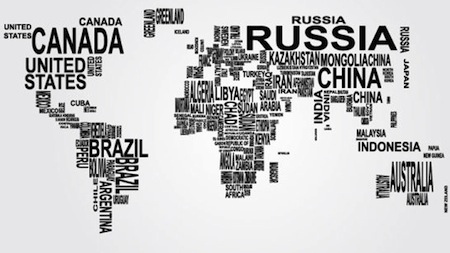Here are my 14 elections to watch in 2014.
Here are 14 more elections to watch in 2014.
Here are 14 potential game-changers for world politics in 2014.
Please click here for the 2013 calendar of world elections.
* * * * *
January
January 5: Bangladesh — parliamentary
January 14-15: Egypt — constitutional referendum
February
February 2: Costa Rica — parliamentary and presidential (1st round)
February 2: El Salvador — presidential (1st round)
February 2: Thailand — parliamentary
February 9: Switzerland — referendum
February 9: Tokyo (Japan) — gubernatorial
February 28: Orange Democratic Movement (Kenya) — internal leadership elections
March
March 6-7: European People’s Party — convention to determine European Commission presidential candidate
March 9: Colombia — parliamentary
March 9: El Salvador — presidential (runoff)
March 15: South Australia — state assembly
March 15: Tasmania (Australia) — state assembly
March 15: Slovakia — presidential (1st round)
March 16: Serbia — parliamentary
March 16: Crimea (Ukraine) — status referendum
March 22: Maldives — parliamentary
March 23: France — municipal (1st round)
March 23: Paris (France) — mayoral (1st round)
March 23: Osaka (Japan) — mayoral
March 29: Slovakia — presidential (runoff)
March 30: France — municipal (2nd round)
March 30: Paris (France) — mayoral (2nd round)
March 30: Thailand — senatorial
March: Antigua and Barbuda — parliamentary
April
April 5: Afghanistan — presidential
April 6: Hungary — parliamentary
April 6: Costa Rica — presidential (runoff)
April 6: Bogotá (Colombia) — mayoral recall election
April 7: Québec (Canada) — parliamentary
April 7: India — parliamentary (first of nine phases)
April 9: Indonesia — parliamentary
April 9: India — parliamentary (second of nine phases)
April 10: India — parliamentary (third of nine phases)
April 10: Orissa (India) — state assembly (first of two phases)
April 12: India — parliamentary (fourth of nine phases)
April 12: Sikkim (India) — state assembly
April 13: Guinea Bissau — presidential and parliamentary
April 13: Macedonia — presidential (first round)
April 17: Algeria — presidential
April 17: India — parliamentary (fifth of nine phases)
April 17: Orissa (India) — state assembly (second of two phases)
April 24: India — parliamentary (sixth of nine phases)
April 27: Macedonia — parliamentary and presidential (second round)
April 30: Iraq — parliamentary
April 30: India — parliamentary (seventh of nine phases)
April 30: Andhra Pradesh (India) — state assembly (first of two phases)
May
May 4: Panama — presidential and parliamentary
May 7: South Africa — parliamentary
May 7: India — parliamentary (eighth of nine phases)
May 7: Andhra Pradesh (India) — state assembly (second of two phases)
May 11: Lithuania — presidential (first round)
May 12: India — parliamentary (ninth of nine phases)
May 20: Malawi — presidential and parliamentary
May 21: South Africa — presidential (indirect)
May 22-25: European Union — parliamentary
May 25: Belgium — parliamentary
May 25: Lithuania — presidential (runoff)
May 25: Colombia — presidential (1st round)
May 25: Ukraine — presidential (1st round)
May 26-27: Egypt — presidential
May: Lebanon — presidential (indirect, ongoing)
May: South Africa — presidential (indirect)
June
June 1: Uruguay — presidential primaries
June 3: Syria — presidential
June 8: Kosovo — parliamentary
June 12: Ontario (Canada) — parliamentary
June 12: Antigua and Barbuda — parliamentary
June 14: Israel — presidential (indirect)
June 14: Afghanistan — presidential (runoff)
June 14: Kansallinen Kokoomus (National Coalition, Finland) —
leadership contest
June 15: Ukraine — presidential (runoff)
June 15: Colombia — presidential (runoff)
June 21: Mauritania — presidential (1st round)
June 25: Libya — parliamentary
June: Yemen — constitutional referendum/span>
July
July 5: Mauritania — presidential (runoff)
July 9: Indonesia — presidential
July 13: Slovenia — parliamentary
July 19-20: Partido Socialista Obrero Español (Spanish Socialist Workers’ Party) — leadership contest
July 20: Thailand — parliamentary
August
August 10: Turkey — presidential (first round)
August 24: Turkey — presidential (runoff)
August 24: Abkhazia (Georgia/Russia) — presidential
August 29: Sint Maarten (Netherlands) — parliamentary
August 31: Saxony (Germany) — state assembly
August 31: Macao — chief executive (indirect)
September
September 14: Brandeburg (Germany) — state assembly
September 14: Thuringia (Germany) — state assembly
September 14: Sweden — parliamentary
September 17: Fiji — parliamentary
September 18: Scotland (UK) — independence referendum
September 20: New Zealand — parliamentary
September 22: New Brunswick (Canada) — provincial assembly
October
October 4: Latvia — parliamentary
October 5: Brazil — parliamentary and presidential (1st round)
October 5: Bulgaria — parliamentary
October 12: Bolivia — presidential and parliamentary
October 12: Bosnia and Herzegovina — presidential and parliamentary
October 12: Federation of Bosnia and Herzegovina — presidential and parliamentary
October 12: Republika Sprska — presidential and parliamentary
October 12: Sao Tome and Principe — parliamentary
October 15: Mozambique — presidential
October 15: Haryana (India) — state assembly
October 15: Maharashtra (India) — state assembly
October 24: Botswana — parliamentary
October 26: Uruguay — parliamentary and presidential (1st round)
October 26: Brazil — presidential (runoff)
October 26: Ukraine — parliamentary
October 26: Haiti — parliamentary
October 26: Tunisia — parliamentary
October 27: Toronto (Canada) — mayoral
October: Ghana — death penalty referendum
November
November 2: Romania — presidential (first round)
November 4: United States — congressional and gubernatorial
November 9: Catalunya (Spain) — independence referendum (unofficial)
November 16: Romania — presidential (runoff)
November 16: Lebanon — parliamentary
November 22: Bahrain — parliamentary (1st round)
November 23: Tunisia — presidential (1st round)
November 23: Calabria (Italy) — parliamentary
November 23: Emilia-Romagna (Italy) — parliamentary
November 25: Jammu and Kashmir (India) — state assembly (first of five phases)
November 25: Jharkhand (India) — state assembly (first of five phases)
November 27: Tonga — parliamentary
November 28: Greenland (Denmark) — parliamentary
November 29: Union pour un mouvement populaire (Union for a Popular Movement) — leadership contest
November 29: Bahrain — parliamentary (2nd round)
November 29: Namibia — presidential and parliamentary
November 29: Victoria (Australia) — state assembly
November 30: Uruguay — presidential (runoff)
November 30: Moldova — parliamentary
December
December 8: Dominica — parliamentary
December 10: Mauritius — parliamentary
December 14: Japan — parliamentary
December 17-18: ZANU-PF (Zimbabwe) — leadership election
December 20: Jharkhand (India) — state assembly (fifth of five phases)
December 20: Jammu and Kashmir (India) — state assembly (first of five phases)
December 21: Uzbekistan — parliamentary
December 21: Tunisia — presidential (runoff)
December: Dominica — parliamentary
December: Switzerland — presidential (indirect)
By end-of-year: Egypt — parliamentary
December: Tuvalu — parliamentary


